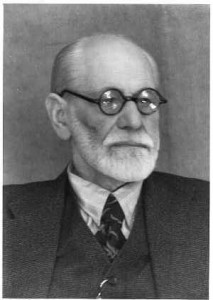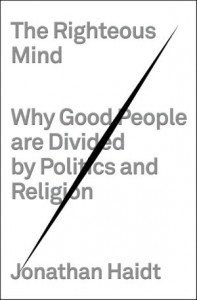This is mark Joseph “young” blog entry #72, on the subject of Being an Author.
One of my sons was in some sort of meeting or interview and was asked what his father did. “He’s an author,” was his reply.
I wasn’t present, so I don’t know what was said or done at that moment, but my son got the distinct impression of disdain, a sort of, “Right, he’s a layabout who does nothing and thinks that people should give him money for scribbing on paper, but what does he have to show for it?” My son, at least, felt that I was being insulted by the questioner’s attitude.
What strangers think of me is of no consequence, although I am concerned about the opinions of my readers and other fans (I am more than an author, being also a game designer and a musician and a Bible teacher). I am more concerned that one of my other sons seems at times to be of the opinion that I waste my time trying to succeed at such a career, that I should have a “real” job that makes enough money to support the family. He is not old enough to have known our lives when I was not making enough money to support the family working as a radio announcer, a microfilm technician, a drywall installer and painter, or a health insurance claims processor. I suppose perhaps there are people who claim to be authors who lack any skill or talent in the field, and I think everyone in creative fields faces some self-doubt, some uncertainty as to whether they are really “good enough” to do this. However, I think the notion that someone is not an author, or that this is a foolish idea, a flawed self-perception, is difficult to justify. I am an author; I might not be terribly successful at it, but there are good reasons why the latter is not a good measure of the former.
This is not really about whether or not I am an “author” so much as about what it takes to qualify for that title. For my part, I thought I would be a musician, and had the idea of being an author on a distant back burner–in college, circa 1977, I took a class entited Creative Writing: Fiction, and began work on a fantasy epic that quickly bogged down into trouble and wound up on that same distant back burner. Either the Lord or happenstance, depending on your viewpoint, landed me at WNNN-FM, a contemporary Christian radio station, first as a disc jockey/announcer, working my way up ultimately to program director, with a side job editing (and largely writing) the radio station newsletter. Along the way I developed a relationship with the associate editor of a local newspaper (The Elmer Times), which at some point published a couple of pieces of political satire I wrote, about 1983. I was published, but I was not yet thinking of myself as an author. I also started putting together some notes about the controversy over Dungeons & Dragons™, and somewhere around 1991 composed a draft of an article which I tried unsuccessfully to farm to a few Christian magazines, impeded perhaps by the fact that I didn’t actually subscribe to or regularly read any magazines.
Late in I think 1992 Ed Jones approached me about co-authoring his game idea, “Multiverse”, which was ultimately to become Multiverser™. I had been running original Advanced Dungeons & Dragons™ since 1980, and he had been playing in my game for perhaps a year (and I for a slightly shorter time in his) during which we had had discussed role playing games generally at length and I had become one of his Multiverser™ playtesters; he had read the unpublished article. In the spring of 1997 he withdrew from the project due to complications in his personal life and left me to finish the work and publish the game later that fall. I now had two books in print (the Referee’s Rules and The First Book of Worlds), but did not think of myself as an author so much as a game designer. I started half a dozen web sites (now all either gone or consolidated here as various sections of M. J. Young Net) primarily to promote the game; that defense of Dungeons & Dragons™ article I’d drafted a decade before became one of the founding works under the title Confessions of a Dungeons & Dragons™ Addict, along with web sites on time travel, D&D, law and politics, and Bible. Still, the publication of Multiverser led to invitations to write for role playing game related web sites–starting with Gaming Outpost and extending to include articles at RPGNet, Places to Go, People to Be, The Forge, Roleplayingtips.com, and perhaps half a dozen others which no longer exist. I was also asked to become the Chaplain of the Christian Gamers Guild, and contributed to their e-zine The Way, The Truth, and the Dice, and wrote a few articles mostly about such subjects as business, e-commerce, and morality in politics, which appeared on various sites around the web. Multiverser: The Second Book of Worlds went to print, confirming my authenticity as a game designer.
Sometime in 1998 Valdron Inc started discussing publishing a Multiverser comic book series, and since I was the in-house writer it fell to me to create the stories. I began these, working as if they were comic books, writing individual panels. I actually did not know that many authors who wrote books also wrote comic books and “illustrated novels”, but it was a short-lived endeavor–I wrote three issues, two episodes for each, and then the in-house artists said that there was no way that a comic could be produced on the kind of budget we had, and everything went onto that proverbial back burner, where it simmered. However, this one started to boil over, and after consulting with Valdron’s people I rewrote those episodes and created Multiverser‘s first novel–my first novel–Verse Three, Chapter One. Valdron put it into print, and we sold a few hardcover copies; I have no idea of the number. However, at this point I thought of myself as an author: I had a novel in print.
When I was in high school I worked stage crew (yeah, you probably guessed that, right?), as a sophomore for the junior class play. At one point one of the characters questions another about a book he’d written. It wasn’t a big deal, the author says; it only sold three hundred copies. I’d like to read it, the questioner continued; where can I get it? From me, the author responded; I have three hundred copies. In the trade there has long been what is disdainfully called “vanity press”, the ability to write your own book and have it printed for a few thousand dollars, receiving a few hundred copies which you then can sell entirely on your own. In the digital age that has become more complicated. It is now possible to go through companies like Lulu.com and print your book at very little cost, get an international standard book number (ISBN), and have it listed through Amazon and other retailers. That is not how those first four books went to press, but some might think they were “vanity press” anyway. Having been through law school, I undertook the necessary steps to create a corporation, sold stock, got the stockholders to elect a board of directors who in turn appointed corporate officers, and spearheaded the effort to publish and promote the Multiverser game system and supplements. I would say that none of us had a clue what we should do, but that’s not quite true–we all had a few clues, and we proceeded to stumble through the effort. It would be wrong to say that the company was entirely comprised of my friends and family. Many of the stockholders were family or friends, and most of the rest were friends of family or friends of friends, and of course it being a small company I ultimately met all of them, chatting with them at stockholder picnics and such. My next few books were closer to the “vanity press” sort. I wrote What Does God Expect? A Gospel-based Approach to Christian Conduct, and when Valdron decided they did not want to be more closely associated with Christian book publishing I asked people for ideas on getting it in print, and thus was introduced to Lulu.com. That was also the venue I used to release About the Fruit, and I have not quite completed the process of releasing a book entitled Do You Trust Me? due to a failure on my part to stick to the process. Valdron released a book version of what might be called the first season of the Game Ideas Unlimited series from Gaming Outpost; at the same time I did the same for the series entitled Faith and Gaming that had been published at the Christian Gamers Guild web site. Some time after that Blackwyrm Publishing approached me about permitting them to publish an expanded edition of Faith and Gaming, and thus one of my books is in print through a publishing house in which I hold no interest otherwise.
The question, then, is not really whether I am an author. Depending on how you count them I have between eight and ten books in print (two titles were published in two different editions); some of my online articles have been translated and printed in the French gaming magazine Joie de Role, and I was for quite a few years paid for regular contributions to TheExaminer.com. The question is at what point I became an author.
In this I am reminded that many authors struggle for many years. Steven King’s financial problems were so great that even after he was famous and made a television commercial for them, American Express would not authorize a card for him; he kept a day job as a teacher until he sold the movie rights to Christine, which is when the tide turned for him. Was he an author when his books were not bestsellers and he had to teach to support himself? J. K. Rowling struggled as a single mother, and reportedly received a mere six thousand pounds for the rights to the first printing of Harry Potter and the Philosopher’s Stone; she is now reportedly wealthier than the Queen of England. Was she an author when she was writing the book that started it all–and if so, who knew?
I have always been a musician; I have never made much money at it. I have composed hundreds of songs, performed thousands times, been part of dozens of bands, choirs, combos, performing groups, and accompanist groups, and had some avid fans (in college some wanted to print Bach and Young T-shirts, but it was not so easy then). I have one album, Collision Of Worlds, on the market. Am I not a musician because I don’t make a living at it? There are thousands upon thousands of singers and instrumentalists who play bars and nightclubs, weddings and parties, who hold regular jobs; it is a joke in the music industry to say to a young musician, “Don’t quit your day job.” Are those not musicians, because they cannot support themselves doing what they love?
I am not an artist, but it is typical in the art world that painters and sculptors struggle for decades to make a name for themselves, to make a living creating artwork, only to die penniless–and then suddenly to have everything they ever created leap to new values. Were they not really artists during their lives, but became so the moment they died?
In the creative world, people create, and it is that aspect of creating that makes them authors–or poets, artists, musicians. Some authors eke out a living; some become incredibly wealthy; some spend more than they earn trying to become known. That is true in all the creative arts, including filmmaking–for every Robert Townsend Hollywood Shuffle success story there are dozens of good but failed independent films. Herman Melville was not well known prior to writing Moby Dick, despite having written for newspapers and magazines. Being an author is not primarily defined by commercial success; it is defined by creative product.
I should footnote this by mentioning that that first novel has now been released on the Internet, and the second is following it in serialized format beginning today. I am an author, even if I give away my product. Your support through Patreon and otherwise helps make it possible for me to publish and you to enjoy some of that. It does not change whether I am an author, only whether I am viewed as successful.
[contact-form subject='[mark Joseph %26quot;young%26quot;’][contact-field label=’Name’ type=’name’ required=’1’/][contact-field label=’Email’ type=’email’ required=’1’/][contact-field label=’Website’ type=’url’/][contact-field label=’Comment: Note that this form will contact the author by e-mail; to post comments to the article, see below.’ type=’textarea’ required=’1’/][/contact-form]












